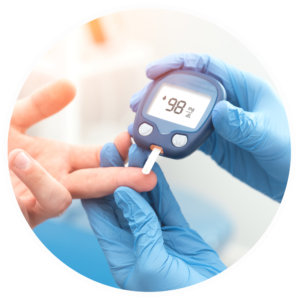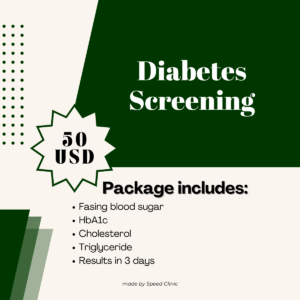Discover proven strategies to take control of your diabetes. Learn practical tips for managing your condition and achieving long-term success.
Managing diabetes effectively is crucial for maintaining good health and preventing complications. With the right strategies, you can take control of your diabetes and lead a fulfilling life. Here are proven strategies to help you manage your diabetes successfully:
1. Monitor Your Blood Sugar Levels Regularly
Regular blood sugar monitoring is essential for effective diabetes management. Use a glucose meter to check your blood sugar levels as recommended by your healthcare provider. Consistent monitoring helps you understand how your diet, exercise, and medication affect your blood sugar levels, allowing you to make necessary adjustments to keep your diabetes in check.
2. Adopt a Balanced Diet for Diabetes Control
A balanced diet is key to managing diabetes effectively. Focus on consuming a variety of nutrient-rich foods such as vegetables, whole grains, lean proteins, and healthy fats. Pay attention to your carbohydrate intake, as carbs significantly impact blood sugar levels. Consult with a registered dietitian to create a personalized meal plan that supports your diabetes management goals.
3. Incorporate Regular Exercise into Your Routine
Exercise plays a vital role in controlling diabetes. Aim for at least 150 minutes of moderate-intensity exercise per week, such as brisk walking, cycling, or swimming. Regular physical activity helps improve insulin sensitivity, lowers blood sugar levels, and promotes overall health. Choose activities you enjoy to stay motivated and integrate exercise into your daily routine.
4. Follow Your Diabetes Medication Plan
Adhering to your prescribed medication regimen is crucial for managing diabetes effectively. Take your medications exactly as directed by your healthcare provider and do not skip doses or alter your medication without consulting your doctor. If you experience side effects or have concerns about your medications, discuss them with your healthcare provider to ensure optimal diabetes management.
5. Manage Stress to Support Diabetes Health
Stress can negatively impact blood sugar levels and overall health. Implement stress management techniques such as deep breathing exercises, meditation, or yoga to help manage stress effectively. Engaging in hobbies and spending time with loved ones can also contribute to reducing stress and improving your overall well-being.

6. Stay Hydrated for Optimal Blood Sugar Control
Proper hydration is essential for maintaining balanced blood sugar levels. Drink plenty of water throughout the day and limit sugary beverages. Staying well-hydrated supports overall bodily functions and helps manage your diabetes more effectively.
7. Schedule Regular Checkups for Diabetes Management
Regular checkups with your healthcare provider are important for monitoring your diabetes and overall health. Schedule routine visits to assess your blood sugar levels, review your treatment plan, and address any concerns. Regular checkups also allow for early detection of potential complications related to diabetes.
8. Educate Yourself About Diabetes Management
Understanding diabetes is crucial for effective management. Educate yourself about the condition, including its effects on your body and the latest advancements in diabetes care. Attend diabetes education classes, read reliable sources, and stay informed to make better decisions about your health and diabetes management.
9. Build a Support Network for Diabetes Care
Having a strong support network can significantly impact your diabetes management. Connect with family, friends, and diabetes support groups who understand your condition and can offer encouragement and practical advice. Sharing your experiences and challenges with others provides emotional support and helpful tips for managing diabetes.
10. Plan for Sick Days to Manage Diabetes Effectively
Illness can affect your blood sugar levels and complicate diabetes management. Have a plan in place for managing diabetes when you’re sick, including how to adjust your medications and monitor your blood sugar levels. Keep a supply of necessary medications and consult your healthcare provider if you experience significant changes in your health.
Conclusion
Taking control of your diabetes involves a combination of regular monitoring, a balanced diet, consistent exercise, medication adherence, stress management, and ongoing education. By implementing these proven strategies, you can effectively manage your diabetes and enhance your quality of life. For personalized support and expert guidance in managing diabetes, contact The Circle Care at info@thecirclecare.com or +201128821002. Our dedicated team is here to help you achieve successful diabetes management and overall well-being.
CLICK HERE FOR MORE INFORMATION ABOUT US












Leave a Reply